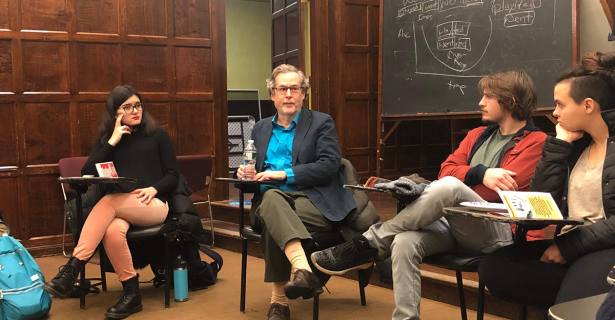On Thursday, November 21, Tufts Amnesty International hosted its second event in a series of lectures on international human rights, entitled “Guantánamo: Who, What, Why”?
Our speaker was Dr. Stephen Soldz, a renowned psychologist and human rights activist who is currently teaching an ExCollege class at Tufts, “Human Wrongs and Human Rights: The Case of Torture”.
Dr. Soldz was greeted by a surprisingly large crowd, perhaps lured in by the opportunity to engage with this oft-misunderstood issue. Dr. Soldz was understated, for someone with such an illustrious career in his efforts to ban the use of torture. He began by giving us an in-depth history of Guantánamo, from its founding to its present operations, and then began walking us through the various modes of interrogation and criminal trials that have occurred there. He placed specific emphasis on the roles of psychologists and other health providers at the prison and explained the relationship of Guantánamo to other problematic national security prisons and the interrogations undertaken in those.
Much of the evening was devoted to a discussion of the practices of torture used at the prison, but Dr. Soldz also directed the discussion toward the efforts of individuals within the government and military who have bravely spoken out against these practices. Ever modest, Dr. Soldz seemed to barely mention how his own advocacy within the American Psychological Association, which has now issued a resolution condemning the use of torture and restricting its members from participating in any such situation. His stories of bravery, compassion, and humanity were inspiring and uplifting, and the crowd left this heavy discussion energized. Indeed, we were all excited by the possibilities that Dr. Soldz has shown us, as his lecture proved how the actions of even a few individuals can be instrumental in ending gross abuses of human rights.

